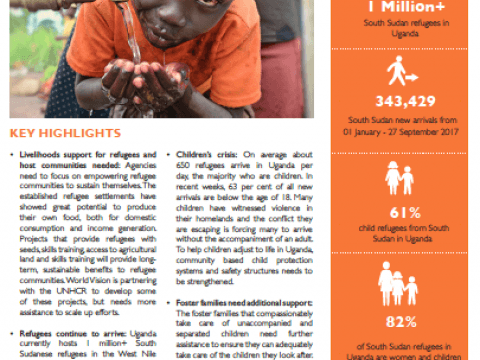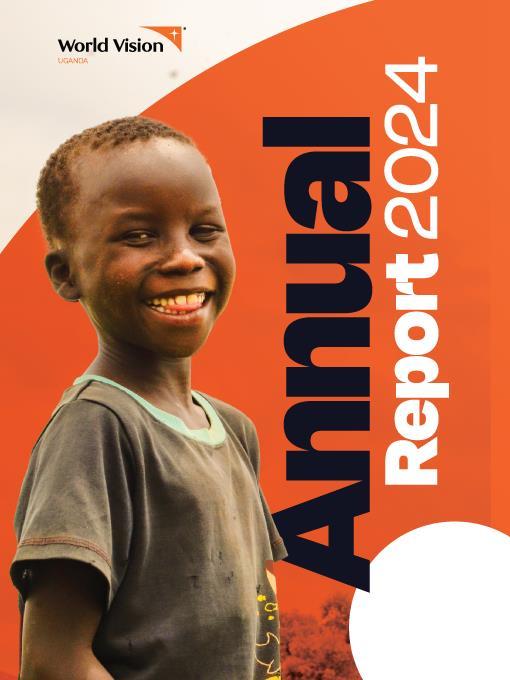Responding to Uganda's refugee crisis - Situation Report #15
Download
World Vision continues to respond to the refugee crisis in northern Uganda, where more than one million people have crossed into the country since 2013.
With its ongoing response, World Vision is drawing attention to:
- Livelihoods support for refugees and host communities needed: Agencies need to focus on empowering refugee communities to sustain themselves. The established refugee settlements have showed great potential to produce their own food, both for domestic consumption and income generation. Projects that provide refugees with seeds, skills training, access to agricultural land and skills training will provide longterm, sustainable benefits to refugee communities. World Vision is partnering with the UNHCR to develop some of these projects, but needs more assistance to scale up efforts.
- Refugees continue to arrive: Uganda currently hosts 1 million+ South Sudanese refugees in the West Nile Region. They are fleeing from conflict, drought and hunger. More South Sudanese people will continue to flee until the root causes of the conflict are addressed. An inclusive and sustainable political solution is the only way forward to achieve lasting peace in South Sudan.
- Children’s crisis: On average about 650 refugees arrive in Uganda per day, the majority who are children. In recent weeks, 63 per cent of all new arrivals are below the age of 18. Many children have witnessed violence in their homelands and the conflict they are escaping is forcing many to arrive without the accompaniment of an adult. To help children adjust to life in Uganda, community based child protection systems and safety structures needs to be strengthened.
- Foster families need additional support: The foster families that compassionately take care of unaccompanied and separated children need further assistance to ensure they can adequately take care of the children they look after. There is a need for families to have access to cash grants and and economic development skills.
Details about World Vision's response are available by downloading the Situation Report



